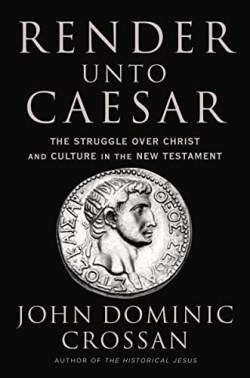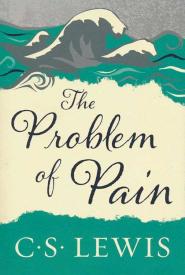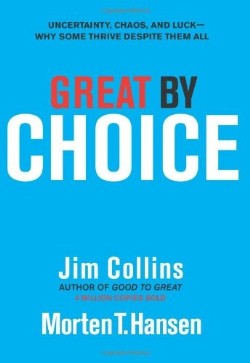1 Tuesday Morning
$17.99
Jake Bryan is a New York City fireman and devoted family man. He has a storybook marriage to Jenny, his high school sweetheart. Taped to the inside of his helmet is the photograph and name of their four-year-old daughter, Sierra. Eric Michaels is a driven financial manager who has spent the past five years climbing the corporate ladder, often at the expense of his wife, Amber, and two young sons. On September 11, 2001, Eric is doing business on the 91st floor of the World Trade Center when the building is hit by a commercial airliner. In the race down the smoky stairwell, Eric falls. At the same moment, firefighter Jake Bryan is rushing up the stairs. He stops and helps Eric to his feet and as he does, his helmet falls. Eric hands the helmet back to the fireman and both men freeze momentarily, stunned by the uncanny resemblance between them. Minutes later the building begins to shake and crumble. When Eric Michaels awakens he is beneath a fire truck. He is burned and bloody, and most of his clothes have been blown off. A fire captain rushes to his side, thinking he recognizes his friend Jake, and leads him to a triage center, then contacts the woman he assumes is the man’s wife Jenny Bryan. By the time she arrives at the hospital, Eric’s face is bandaged from the burns and injuries. When the bandages come off, days later, Jenny assumes that the difference in his appearance is due to the effects of the burns. Eric remembers almost nothing from before the attack. In the months that follow, Eric struggles to fill the gaps in his memory and to relate to a wife and daughter he doesn’t remember. On the opposite coast, Amber, grieving the loss of her husband, is helped by Eric’s best friend–a single man who has always adored her. Then Eric begins having disturbing dreams and flashbacks–of a different family. And questions begin to grow in Jenny’s mind.
in stock within 3-5 days of online purchase
SKU (ISBN): 9780310247524
ISBN10: 0310247527
Karen Kingsbury
Binding: Trade Paper
Published: May 2003
9/11
Publisher: Zondervan
Print On Demand Product
Related products
-
Render Unto Caesar
$28.99Add to cartThe revered Bible scholar and author of The Historical Jesus explores the Christian culture wars–the debates over church and state–from a biblical perspective, exploring the earliest tensions evident in the New Testament, and offering a way forward for Christians today.
Leading Bible scholar John Dominic Crossan, the author of the pioneering work The Historical Jesus, provides new insight into the Christian culture wars which began in the New Testament and persist strongly today.
For decades, Americans have been divided on how Christians should relate to government and lawmakers, a dispute that has impacted every area of society and grown more rancorous over the past forty years. But as Crossan makes clear, this debate isn’t new; it can be found in the New Testament itself, most notably in the tensions between Luke-Acts and Revelations.
In the texts of Luke-Acts, Rome is considered favorably. In the book of Revelations, Rome is seen as the embodiment of evil in the world. Yet there is an alternative to these two extremes, Crossan explains. The historical Jesus and Paul, the earliest Christian teachers, were both strongly opposed to Rome, yet neither demonized the Empire.
Crossan sees in Jesus and Paul’s approach a model for Christians today that can be used to cut through the acrimony and polarization roiling our society and dividing us.
-
Problem Of Pain
$17.99Add to cartFor centuries Christians have been tormented by one question above all — If God is good and all-powerful, why does he allow his creatures to suffer pain? C. S. Lewis sets out to disentangle this knotty issue but wisely adds that in the end no intellectual solution can dispense with the necessity for patience and courage.
-
Great By Choice
$29.99Add to cartThe new question
Ten years after the worldwide bestseller Good to Great, Jim Collins returns with another groundbreaking work, this time to ask: Why do some companies thrive in uncertainty, even chaos, and others do not? Based on nine years of research, buttressed by rigorous analysis and infused with engaging stories, Collins and his colleague, Morten Hansen, enumerate the principles for building a truly great enterprise in unpredictable, tumultuous, and fast-moving times.The new study
Great by Choice distinguishes itself from Collins’s prior work by its focus not just on performance, but also on the type of unstable environments faced by leaders today.With a team of more than twenty researchers, Collins and Hansen studied companies that rose to greatness-beating their industry indexes by a minimum of ten times over fifteen years-in environments characterized by big forces and rapid shifts that leaders could not predict or control. The research team then contrasted these “10X companies” to a carefully selected set of comparison companies that failed to achieve greatness in similarly extreme environments.
The new findings
The study results were full of provocative surprises. Such as:The best leaders were not more risk taking, more visionary, and more creative than the comparisons; they were more disciplined, more empirical, and more paranoid.
Innovation by itself turns out not to be the trump card in a chaotic and uncertain world; more important is the ability to scale innovation, to blend creativity with discipline.
Following the belief that leading in a “fast world” always requires “fast decisions” and “fast action” is a good way to get killed.
The great companies changed less in reaction to a radically changing world than the comparison companies.
The authors challenge conventional wisdom with thought-provoking, sticky, and supremely practical concepts. They include: 10Xers; the 20 Mile March; Fire Bullets, Then Cannonballs; Leading above the Death Line; Zoom Out, Then Zoom In; and the SMaC Recipe.Finally, in the last chapter, Collins and Hansen present their most provocative and original analysis: defining, quantifying, and studying the role of luck. The great companies and the leaders who built them were not luckier than the comparisons, but they did get a higher Return on Luck.
This book is classic Collins: contrarian, data-driven, and uplifting. He and Hansen show convincingly that, even in a chaotic and uncer






Reviews
There are no reviews yet.